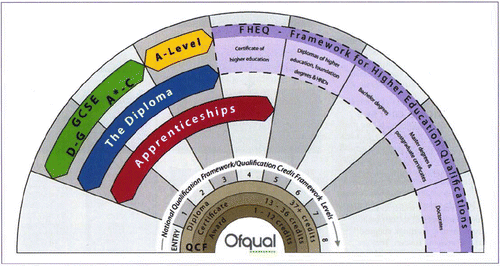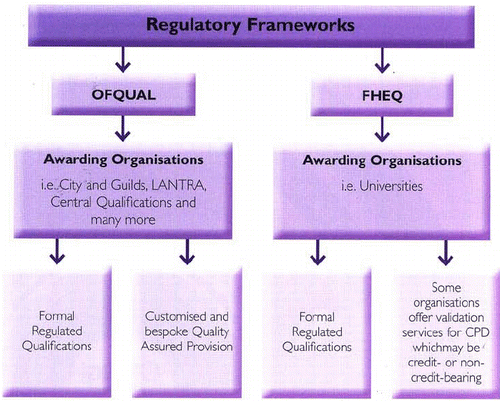It is well documented and widely recognised that CPD is an essential requirement for veterinary nurses to maintain registered status with their professional body (CitationRCVS 2013). However, this should not be the sole driving force behind undertaking professional development courses.
The European Commission cited in CitationColardyn & Bjornavold (2004) recognised that lifelong learning enables not only self-development, but also employability and individual fulfilment. These should also be considerations when determining and selecting which CPD course to undertake.
There are other things, however, that should be considered and clarified as well before you invest in your chosen course. There are numerous CPD providers within the veterinary profession and an array of courses and CPD events on offer across the wider animal-care and pet sectors – all of which may appeal to veterinary nurses as well as the wider public.
It could be argued that the plethora of courses that are advertised and marketed creates confusion amongst veterinary nurses.
To gain an insight into the range of courses available, type ‘dog behaviour course’ into your internet search tool. Google returns about 9,790,000 results! This may be at the extreme end of the spectrum; but when faced with choices about which CPD course to take, the decision should not be made lightly and some simple research undertaken in order to make a more informed decision.
Veterinary nurses are often looking for ways to advance their knowledge and develop their skills. CPD is readily available in a variety of formats – from online webinars to congress events (and everything else between). However, the ever-increasing variety and the way that some courses are marketed can be ambiguous.
CPD courses vary greatly in length, delivery of learning and cost and there is often good reason for this. It can be easy to simply look at the course details and the level of achievement or focus on ‘What post nominal qualification will I get?’ This limited approach may overlook the finer detail, quality, content and standard of the course.
CPD budgets vary greatly in practice. According to the Society of Practicing Veterinary Surgeons Salary Survey (2013), 68.6 per cent of respondents received a CPD budget. This varied from as little as £50 to a maximum of £2,500 as part of the salary package, with £300 being the median.
With this in mind, it is vital to appraise CPD provision and carefully evaluate the significance and benefit it will have for you personally, and for your employer, especially if they are funding the provision. You should, perhaps, also consider the benefit it will yield in improving animal welfare.
So, where does one start with evaluation? Finances and time commitment will play a significant role in establishing the CPD undertaken, and this will often be the most important factor in determining your decision. However, current job role, specific interests, personal ambition and career progression should also play a part when considering CPD courses.
The UK education system is not straightforward and can be confusing when it comes to evaluating courses. Therefore, it is a good idea to have a little understanding of how it operates before you can really begin to evaluate CPD courses.
Courses and CPD outcomes should be considered broadly in three categories:
| 1. | Courses leading to formal qualifications | ||||
| 2. | Bespoke accredited courses | ||||
| 3. | CPD certificate courses | ||||
Each of these categories has both advantages and disadvantages which can help to determine the most appropriate route for individuals. Qualifications and their content can vary greatly; course titles can provide a good indication as to their content, although, as CitationOFQUAL (2014) states, ‘There are a large number of qualifications and the way they are described and marketed can be confusing’.
Formal qualifications
Awarding organisations that deliver vocational qualifications, such as post-VN qualifications, are regulated by the Office of Qualifications and Examinations Regulations (OFQUAL), which sets standards that awarding organisations must meet when they design, deliver and award qualifications. Standards are maintained by on-going monitoring.
A Register of Regulated Qualifications, which contains details of organisations and regulated qualifications can be accessed at www.register.ofqual.gov.uk This is a tool that can be used to check that the ‘qualification’ you are considering is appropriate for your needs.
Qualifications can also be validated and awarded by a Higher Education Institution (HEI), which is either a university or a further education college that delivers degree programmes in conjunction with a partner university. HEIs are not regulated by OFQUAL – instead a different regulatory body, the Quality Assurance Agency (QAA) oversees their course provision.
To find out more about specific qualifications you should contact the awarding organisation. Some qualifications that are offered may not appear on the register, in which case contact the course provider directly and, if there is any doubt, it is advisable to check with the awarding organisation for clarification purposes.
Qualifications are usually described by the title and a specified level of learning in line with the National Qualifications Framework (NQF) or the Framework for Higher Education Qualifications (FHEQ). Figure 1 demonstrates the levels and frameworks and how they interlink.
Figure 1. Levels of qualification and how they relate to each other (image taken from http://ofqual.gov.uk/help-and-advice/comparing-qualifications

‘Formal qualifications are extremely beneficial and are intended to show employers what an individual has learnt and can do as a result of that achievement’ (CitationOFQUAL 2014). However, with this comes the commitment of longer periods of study and generally higher course fees. Increased fees compensate for the investment the awarding institutions have made to enable them to maintain the rigorous standards imposed by the regulatory frameworks.
Accredited or customised provision
The fact that a course is labelled as ‘accredited’ may be used on marketing campaigns and materials promoting courses; although the question that should immediately be asked is ‘accredited by whom?’ If the course is of interest, you should conduct some further investigation before committing to study. Genuine courses should be accredited by an awarding organisation or professional body and this must not be confused with personal endorsement.
It is not easy – nor always possible – to develop formal qualifications because the awarding organisations have a requirement to show to OFQUAL that courses are sustainable in terms of participant numbers annually and are, therefore, financially viable. In such circumstances accreditation of a course by an institution or organisation is the next best option. This allows training providers the opportunity to develop bespoke provision that is designed and aimed at delivery to a specific target group, which may or may not include assessment.
This also provides assurance that the provider offering the course has the required infrastructure: including enrolment protocols, monitoring of learners, appropriately qualified instructors, which sit alongside policies such as equality and diversity, assessment appeals procedures and confidentiality. These and additional policies and procedures underpin the quality of the course and will be externally verified to ensure that standards are maintained.
What is quality assurance in CPD provision?
Quality assurance is fundamentally about maintaining standards and ensuring that learners have the best possible learning experience. It considers how well students are supported during the course and monitors the learning undertaken including:
| • | the delivery of teaching, which includes training/teaching qualifications along with technical knowledge and expertise of the staff | ||||
| • | the support and resources available to students | ||||
| • | course delivery and assessment methodology | ||||
| • | standardised procedures and policies. | ||||
The level of quality assurance will vary depending on whether the course leads to a formal qualification or is an accredited course. The awarding organisation will commonly issue a certificate of achievement for formal qualifications; however, with accredited courses this may be more along the lines of a Certificate of Training (with assessed courses) or Certificate of Attendance (non-assessed courses).
CPD certificate courses
A CPD certificate is generally given to students at the end of a CPD event; it is important that these are kept as they provide evidence of attendance and may be needed should your CPD records be audited.
These CPD events are widely available in the current market and include online webinars, evening meetings, congress events and weekend courses. They are an essential component of the variety of CPD events on offer. Prices can vary considerably along with content, delivery methods and instructors.
Although these can form an attractive way to maintain CPD hours, it is still advisable to evaluate what each may offer, because these CPD events are not externally validated or audited. Some simple considerations include:
| • | How will this enhance my knowledge and develop my skill set? | ||||
| • | Who is teaching or lecturing? Are they technically competent? Do the research! | ||||
| • | Will it enrich animal welfare and/or help improve practice protocols? | ||||
| • | Are there any independent reviews from previous delegates? | ||||
| • | Does the cost reflect the value in terms of the number of hours and the projected outcomes you envisage? | ||||
Summary
In summary, CPD provision is plentiful but also ambiguous and confusing. Figure 2 provides a simplified format summarising provision. However, with CPD budgets being stretched, it is now more important than ever that you are equipped to make informed decisions when planning CPD.
Some basic research and evaluation will enable you to invest in courses that will offer you knowledge and skill development and help you to achieve individual goals.
Correct selection should also provide you with an opportunity to progress your career and achieve additional employability skills that can make a real difference to what you do in practice, not only from a business perspective but, more importantly, in terms of animal welfare.
Additional information
Notes on contributors

Debbie Gray
Debbie Gray BSc (Hons) Cart Ed QTLS RVN MBVNA
Debbie worked as a veterinary nurse in small animal practice for a number of years, as well as being involved with student training and mentoring. In 2003, she was employed as a BSc veterinary nursing lecturer, she taught on the NVQ and Degree programmes and gained a Certificate of Education.
In 2007, Debbie moved to Oaklands College to teach animal management, where she subsequently achieved the BSc (Hons) Veterinary Nurse top-up Degree. She went on to become a programme co-ordinator, monitoring the student progress and quality assurance process for Level 3 Animal Management. Debbie is now employed by the British Veterinary Nursing Association as its education development co-ordinator.
References
- ACCREDITED QUALIFICATIONS (2014) http://www.accredltedquallficatlons.org.uk/ (accessed 08.04.14).
- COLARDYN, D. & BJORNAVOLD, J. (2004) Validation of formal, non-formal and informal learning: policy and practices in EU member states 1. European Journal of Education 39(1).
- GOOGLE (2014) https://www.google.co.uk/?gws_rd=cr&ei=T9mEUs29HqWg0QWox4GYDQ#q=animal+behaviour+course (Accessed 10.26am on 08.04.14).
- LANTRA (2014) http://www.lantra-awards.co.uk/Training-Qualifications/Bespoke-Training.aspx (accessed 08.04.14).
- NOTTINGHAM TRENT UNIVERSITY (2014) https://www.ntu.ac.uk/about_ntu/partner_institutions/validation_services/index.html (Accessed 08.04.14).
- OFQUAL (2014) http://ofqual.gov.uk/help-and-advice/comparing-qualifications (Accessed 13.33 on 08.04.14).
- QAA (2014) http://www.qaa.ac.uk/Publications/Films/Transcripts/Pages/FilmtranscriptWhatisqualityassurance.aspx (accessed 08.04.14).
- QAA, OFQUAL, THE SCOTTISH CREDIT AND QUALIFICATIONS FRAMEWORK PARTNERSHIP CCEA ACCREDITATION, THE CREDIT AND QUALIFICATIONS FRAMEWORK FOR WALES, AND QUALITY AND QUALIFICATIONS IRELAND (2013) Qualifications Can Cross Boundaries: A Rough Guide to Comparing Qualifications in the UK and Ireland, 4th Ed.
- RCVS (2013) Continuing Professional Development (CPD) for veterinary nurses [Online]. Available from http://www.rcvs.org.uk/education/cpd-for-vns/ (accessed April 2013).
- SOCIETY OF PRACTISING VETERINARY SURGEONS (2013) Salaries Survey.

